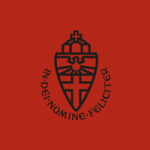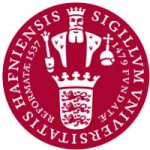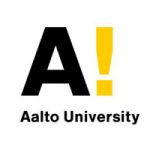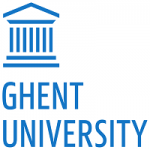项目介绍
Are you interested in making the processes for building machine learning models more transparent and explainable? Would you like to work in interdisciplinary teams to uncover the needs of clinical decision support systems so that such needs can be integrated into these novel processes? Then this position might be for you!
In this PhD position you will be part of the ELSA lab on Legal, Regulatory and Policy Aspects of Clinical Decision Support Systems. This interdisciplinary lab studies the technological, ethical and legal requirements necessary for the development and use of clinical decision support systems (CDSSs), so that their use in the clinic can be subject to rigorous quality control and certification. In this position, you will work on exploring synergies between Bayesian networks and AutoML (automated machine learning) to make better data science. On the one hand, you will work on learning Bayesian networks supported by AutoML. This will allow for the development of reproducible, data-driven Bayesian-network pipelines, which should also allow for user interaction (e.g. domain knowledge). On the other hand, you will work towards making AutoML systems more interpretable by developing Bayesian network explanations, which will allow users to get insights into the pipelines evaluated by an AutoML system. This position is linked to CDSSs as the healthcare domain is envisioned as the main application area where the novel methods will be demonstrated.
You will be part of the Probabilistic Graphical Models group at the Donders Centre for Cognition and of the interdisciplinary team of researchers and PhD candidates on this consortium project. In addition to research in this domain, you will contribute to academic teaching in the AI BSc and MSc programmes, follow courses offered by the Donders Graduate School and the national research schools IPA and SIKS, and collaborate with inspiring colleagues in the international PGM research community.
Your teaching load may be up to 10% of your working time.
Would you like to learn more about what it’s like to pursue a PhD at Radboud University? Visit the page about working as a PhD candidate.
Profile
- You have an MSc in computer science, applied mathematics, artificial intelligence, or a related discipline.
- You have a strong interest in machine learning and explainable AI research.
- You have mature programming skills, as, for example, demonstrated in your MSc thesis research project.
- You have good writing and presentation skills, a good command of the English language, and demonstrable skills in interdisciplinary collaboration (e.g. in your study programme).
- Knowledge of/experience in Bayesian networks is appreciated.
- Knowledge of/experience in AutoML or hyper-parameter optimisation is also appreciated.
We offer
- We will give you a temporary employment contract (1.0 FTE) of 1.5 years, after which your performance will be evaluated. If the evaluation is positive, your contract will be extended by 2.5 years (4-year contract).
- You will receive a starting salary of €2,901 gross per month based on a 38-hour working week, which will increase to €3,707 in the fourth year (salary scale P).
- You will receive an 8% holiday allowance and an 8,3% end-of-year bonus.
- We offer Dual Career Coaching. The Dual Career Coaching assists your partner via support, tools, and resources to improve their chances of independently finding employment in the Netherlands.
- You will receive extra days off. With full-time employment, you can choose between 30 or 41 days of annual leave instead of the statutory 20.
Additional employment conditions
Work and science require good employment practices. Radboud University’s primary and secondary employment conditions reflect this. You can make arrangements for the best possible work-life balance with flexible working hours, various leave arrangements and working from home. You are also able to compose part of your employment conditions yourself. For example, exchange income for extra leave days and receive a reimbursement for your sports membership. In addition, you receive a 34% discount on the sports and cultural activities at Radboud University as an employee. And, of course, we offer a good pension plan. We also give you plenty of room and responsibility to develop your talents and realise your ambitions. Therefore, we provide various training and development schemes.
We are
The Donders Institute for Brain, Cognition and Behaviour is a world-class interfaculty research centre that houses more than 700 researchers devoted to understanding the mechanistic underpinnings of the human mind. Research at the Donders Institute is focused around four themes: 1. Language and communication, 2. Perception, action and control, 3. Plasticity and memory, 4. Neural computation and neurotechnology. Excellent, state-of-the-art research facilities are available for the broad range of neuroscience research that is being conducted at the Donders Institute. The Donders Institute has been assessed by an international evaluation committee as ‘excellent’ and recognised as a ‘very stimulating environment for top researchers, as well as for young talent’. The Donders Institute fosters a collaborative, multidisciplinary and supportive research environment with a diverse international staff. English is the lingua franca at the Institute.
You will join the Probabilistic Graphical Models Group at the Donders Institute, and you will be supervised by Dr Marcos L P. Bueno and Prof. Johan Kwisthout. As its name suggests, the aforementioned group studies the foundations and applications of probabilistic graphical models (PGMs). The group’s research is centred around two research lines: (1) PGMs for decision support systems, and (2) foundations of stochastic computing. The first line focuses on explainability, trustworthiness, maintainability, online or federated learning in Bayesian networks and other PGM models, particularly with applications in clinical decision support systems. The second research line focuses on topics such as approximate Bayesian inference, (parameterised) complexity classes for stochastic computing, and realisation of probability distributions and computations on them in novel materials and computing architectures. This position will contribute to the first research line.
Faculty of Social Sciences
At the Faculty of Social Sciences, humanity and society are our focus; we study how people behave, think and feel. Within this context, we look at themes such as human behaviour and the human psyche, education and upbringing, communication, society and culture. The faculty provides education to 6,000 students and employs 700 staff. Education is organised into six programme clusters: Psychology; Artificial Intelligence; Pedagogical Sciences and Educational Sciences; Communication Science; Sociology; and Cultural Anthropology and Developmental Sociology, and the Radboud Centre Social Sciences as an institute for post-master education have been merged into the Social Sciences Education Institute. Our research is carried out within three research institutes: the Donders Centre for Cognition, the Behavioural Science Institute, and Radboud Social Cultural Research.
Radboud University
At Radboud University, we aim to make an impact through our work. We achieve this by conducting groundbreaking research, providing high-quality education, offering excellent support, and fostering collaborations within and outside the university. In doing so, we contribute indispensably to a healthy, free world with equal opportunities for all. To accomplish this, we need even more colleagues who, based on their expertise, are willing to search for answers. We advocate for an inclusive community and welcome employees with diverse backgrounds, cultures, and perspectives. Will you also contribute to making the world a little better? You have a part to play.
If you want to learn more about working at Radboud University, follow our Instagram account and read stories from our colleagues.
相关项目推荐
KD博士实时收录全球顶尖院校的博士项目,总有一个项目等着你!






